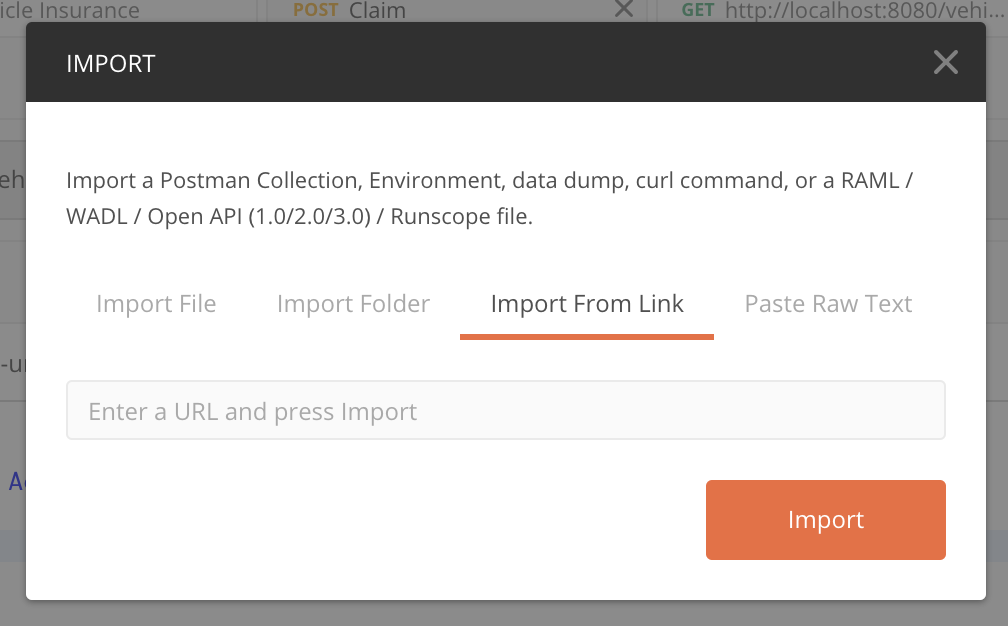This CorDapp is an extension of the Corda Kotlin Car Insurance sample app, available here.
Additionally, it demonstrates how to create a driver test using docker to run tests using a Postgres database. This can be useful to check that your database migrations will work on Postgres as sometimes there are discrepancies between how migrations run on H2 and Postgres.
It also demonstrates how to use deploynodes to create a local network with Postgres as a backing database.
This CorDapp demonstrates how QueryableState works in Corda. Corda allows developers
to have the ability to expose some or all parts of their states to a custom database
table using an ORM tools. To support this feature the state must implement
QueryableState.
In this CorDapp we would use an Insurance state and persist its properties in a
custom table in the database. The Insurance state among other fields also
contains an VehicleDetail object, which is the asset being insured. We have used
this VehicleDetail to demonstrate One-to-One relationship. Similarly we also
have a list of Claim objects in the Insurance state which represents claims
made against the insurance. We use them to demonstrate One-to-Many relationship.
A spring boot client is provided with the cordapp, which exposes two REST endpoints
(see Controller in the clients module) to trigger the flows.
Use the command ./gradlew bootRun in the project root folder to run the Spring Boot
Server.
There are two flow in this cordapp:
-
IssueInsurance: It creates the insurance state with the associated vehicle information.
-
InsuranceClaim: It creates the claims against the insurance.
For development environment setup, please refer to: Setup Guide.
Additionally, you will need docker installed to spin up a Postgres database, which is used for both the Postgres integration test and deploy nodes below.
Note: It can also be done with a locally installed Postgres instance, db parameters are stored in constants.properties.
Start a local Postgres instance via docker using:
docker run --name corda-pg -e POSTGRES_PASSWORD=pass1234 -p 5432:5432 -d postgres
In order to set up the schemas and users, on Windows run:
type postgres-deploynodes\src\main\resources\db_setup.sql | docker exec -i corda-pg psql -h localhost -p 5432 -U postgres
On mac/linux:
cat postgres-deploynodes/src/main/resources/db_setup.sql | docker exec -i corda-pg psql -h localhost -p 5432 -U postgres
Then, in order to start the network and run the migration scripts:
./gradlew :postgres-deploynodes:deployNodes
And start the nodes by running:
./postgres-deploynodes/build/nodes/runnodes
To kill the docker instance and clean up any resources used:
docker kill corda-pg
docker system prune
The integration test in workflows/src/integrationTest/kotlin/net/corda/samples/carinsurance/DriverBasedTest.kt can be used as
an example of how to run a full Corda integration test using Postgres as a backend. Often when using H2 as a backend for integration
testing, Postgres specfic migration errors aren't discovered until the node is first installed in production.
Common issues with Postgres migration scripts that can cause a 'table not found' error:
- schema names need to be all lower case
- table names need to be all lower case
The Postman collection containing API's calls to the REST endpoints can be imported from the link: https://www.getpostman.com/collections/ddc01c13b8ab4b5e853b. Use the option Import > Import from Link option in Postman to import the collection.
The JDBC url to connect to the database would be printed in the console in node
startup. Use the url to connect to the database using a suitable client. The
default username is 'postgres' and the password is 'pass1234' (this can be changed in constants.properties).
You can download DBeaver to connect to the Postgres instance here.
